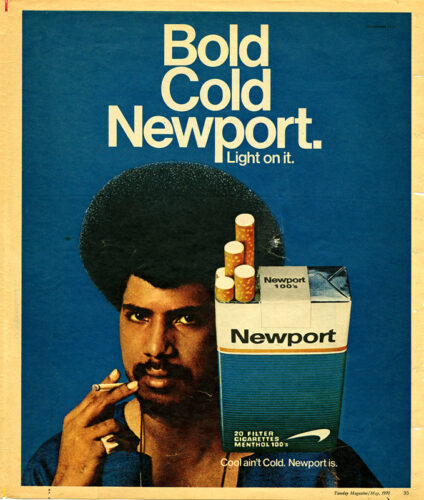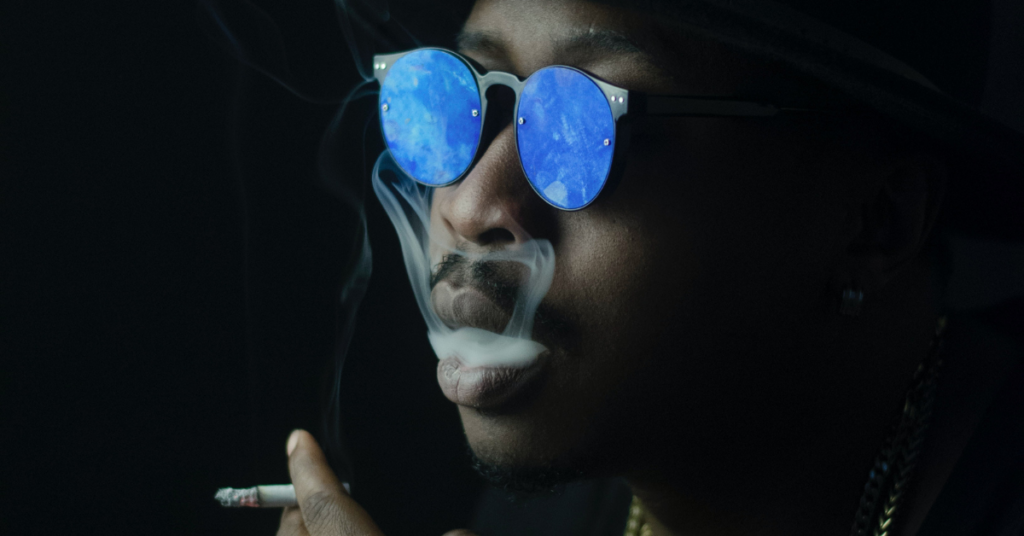How menthols became the preferred cigarette of African Americans is no accident. Beginning in the 1960s, tobacco companies strategically marketed these products to Black communities.
They concluded that menthol’s soothing, cooling effects would appeal to them. The menthol flavoring also enhanced the addictiveness of nicotine which makes it harder to quit.
“Through the use of television and other advertising media, coupled with culturally tailored images and messages, the tobacco industry “African Americanized” menthol cigarettes,” stated this 2004 Nicotine & Tobacco Research article by Phillip S. Gardiner.

Tobacco companies gave out free menthol cigarette packs in Black communities. They donated to Black organizations and sponsored music events that appealed to Black audiences.
“They come across as, ‘hey, we’re doing something good for the African American community’, when the reality of it is, they’re contributing to the death of the African American community with their products,” said Michael Scott of The Center for Black Health & Equity based in Durham, North Carolina.
While the Food and Drug Administration (FDA) plans to ban menthol flavored cigarettes, many believe the measure comes too late.
Between 1980-2018, an estimated 1.5 million African Americans began smoking menthol cigarettes. Over that same period, about 157,000 of them died. Since smoking can cause diseases like cancer, diabetes, stroke and heart disease, it is believed that approximately 45,000 African Americans will die from a smoking-related illness this year.
Black Men’s Health recently hosted Mr. Scott for a vital discussion on menthol use in the Black community. He also talked about the work that The Center for Black Health & Equity is doing to address health disparities nationwide. Tap in.
2:13: Michael Scott speaks about his work with The Center for Black Health & Equity.
6:26: Scott on The Center for Black Health & Equity’s work around tobacco cessation and menthol use.
12:57: Scott speaks about the pervasiveness of menthol cigarette use in the African-American community.
19:51: How and why “Big Tobacco” targeted African American communities to sell menthol cigarettes.
23:41: Scott on why the “personal responsibility argument” isn’t enough when it comes to nicotine addiction and the Black community.
27:02: How menthol use impacts non-smokers.
27:51: Scott on how slavery and the tobacco industry are at the root of the American economy.
29:47: The connection between mental health and tobacco use.
30:24: Scott on what The Center for Black Health & Equity is doing to address African American mental health.
34:43: His observations on the mental health conditions that impact Black men.
37:57: Scott talks about The Center for Black Health & Equity’s signature event, The State of Black Health Conference.
41:30: Scott on his organization’s other national event, “No Menthol Sunday,” an annual faith-based observance day.
43:37: What the public can do to support and strengthen the Food and Drug Administration’s ban on menthol cigarettes.
Michael Scott is a Senior Program Manager with The Center for Black Health & Equity. For more information on The Center for Black Health & Equity, please visit https://www.centerforblackhealth.org/.












